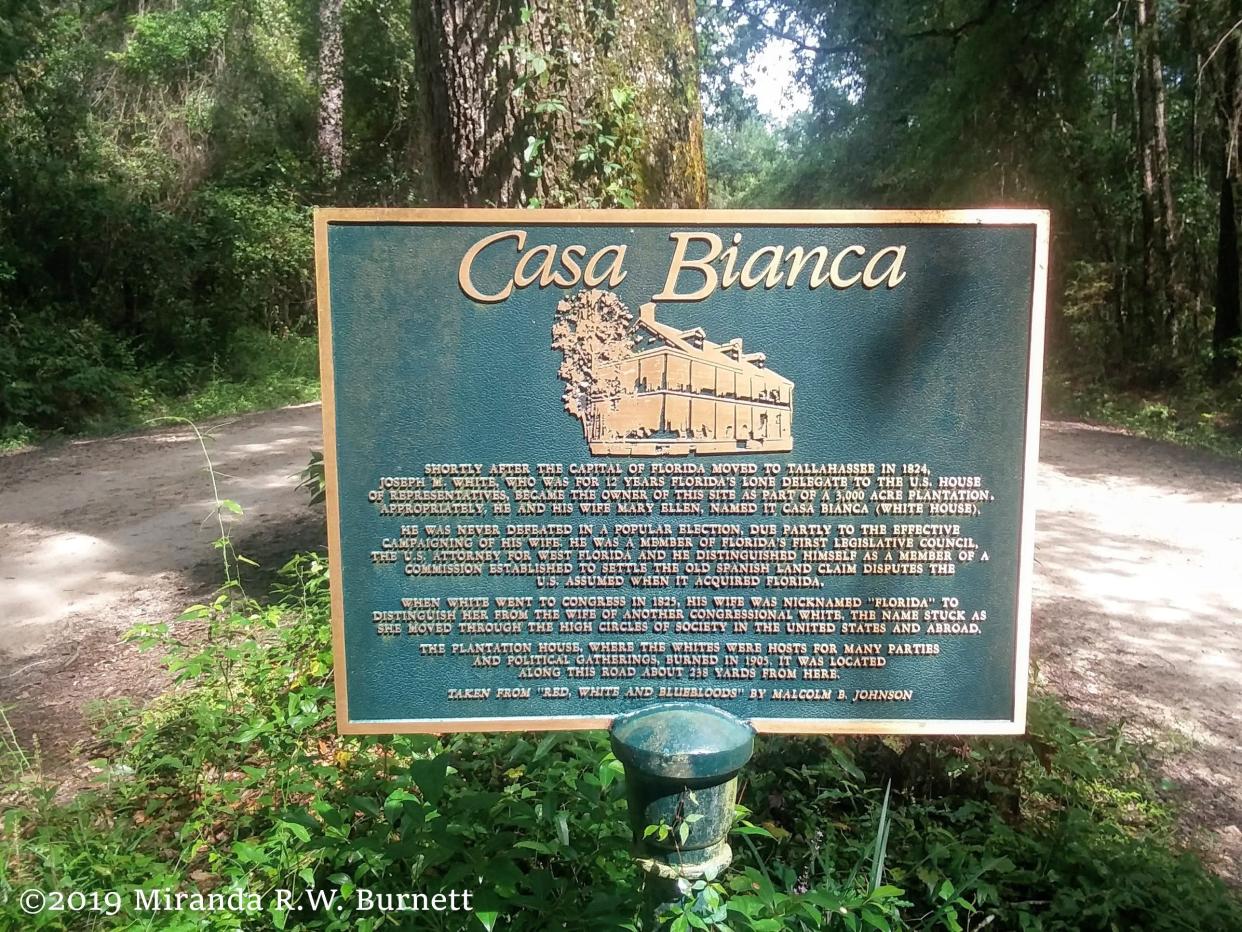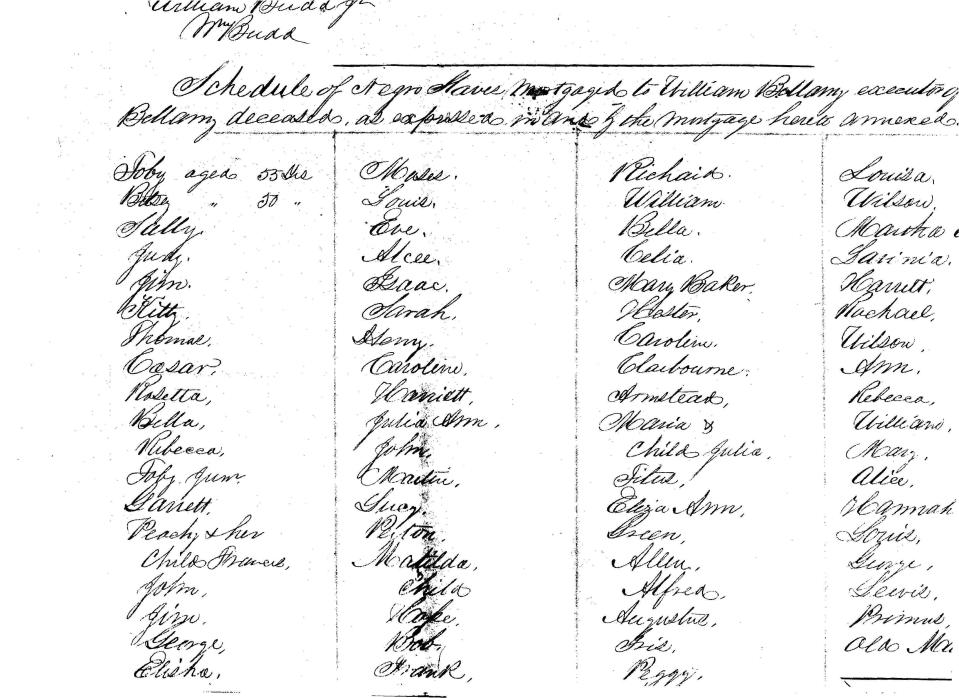Shared history of enslavement unites communities in Florida, Virginia

Consider what ties us together — knowledge of our pasts, our memories, “where we came from.” But what if there isn’t any history. What if because you were enslaved, sold, transported, separated, unrecorded, lost-track-of, the chance of your imparting something of who you were to those who followed became nil.
Indeed, the descendants of two plantations, one near Charlottesville, Virginia, and the other in Jefferson County, Florida, had had no idea that nearly 150 years ago they might have been one community.
Pregnancy and Infant Loss: Walk to Remember: Service, candles honor indescribable loss of an infant
'Dancing' priest: Meet Fr. Lonnie Lacy, the new rector at St. John's Episcopal Church
'Black History Firsts': Former Tallahassee mayor writes about 'Black History Firsts' in new book
Pastor Tobbie Berrian III and the congregation of Jefferson County’s Casa Bianca Missionary Baptist Church will be welcoming visitors from the Highland Descendants Council of Charlottesville, for a historic meeting on Saturday and Sunday, Oct. 8-9.
The Council's trip, sponsored by the Caplin Foundation, will bring together two groups of people, and two church congregations, whose linked history goes back across time and territory to at least the early 1820s.

Research on a president's plantation
In 2017, two independent researchers, Miranda Burnett, an historical collections librarian, and Martin Violette in Charlottesville, Virginia, noticed that as they did their research on President James Monroe’s Albemarle County plantation called Highland, certain names of enslaved individuals and their whereabouts had been extracted from the lists of “owned property.”
The pair looked further, into the business dealings of Monroe, his letters to James Madison, and further to communications with American business mogul, J.J. Astor.
What resulted was a picture of a President in financial straits with an apparent loan due to Astor. His solution was to sell some of his slaves to a man called Colonel Joseph White who in 1828, hoped to open a cane and cotton plantation he would call Casa Bianca in the Florida territory around Jefferson County.
Monroe sold the slaves, suggesting White “take them in families.” The result was that Monroe was paid $5,000 for three families and one single 9-year-old girl, which he used to pay off, at least in part, the loan due Astor. By 1859, the number of enslaved persons on the 3,000-acre Casa Bianca plantation would reach 126.
A trail leads to Florida
Researchers Burnett and Violette realized that a trail was being uncovered that had not only been forgotten about, but perhaps never really known by anyone except those who had died a century before.
The pair began what they call the “Take Them in Families Project,” their self-funded labor of the heart to reunite two groups of people rent apart.
Burnett and Violette went to a small Virginia cemetery not far from Monroe’s Highlands plantation, discovering the name “Monroe” on several of the tombstones, and then to the Middle Oak Baptist Church in Albemarle County, Virginia, where a number of parishioners claimed to be descendants from his enslaved workers. With family names, the researchers began comparing them with names they were finding on the lists of slaves at Casa Bianca.
After a year of discovery and pouring over lists of names, now it was time to reach out to Jefferson County. “We put out brochures and flyers and invited people to come to the Casa Bianca Missionary Baptist Church to learn what we knew,” says Burnett. “Everyone was very excited.”
Joyce Farmer, on the Advisory Council of the College of William of Mary in Virginia, was now also involved, as were other researchers and genealogists, and plans were begun for a reunion, a First Descendants meeting for the two groups of people, who shared a common past.
Reunion planned at Casa Bianca
On Saturday and Sunday, the Casa Bianca M. B. Church in Monticello will host a group of nine or more descendants of Monroe’s Virginia plantation, plus researchers and historians, and filmmaker Horace Scruggs, who will conduct oral history interviews.
Sharon Berrian, wife of Casa Bianca Church’s pastor, Tobbie Berrian III, says that Saturday at the church, photographs, family lineage trees, and the research from the Take Them as Families Project will be on display, as well as oral histories taken. Later that afternoon, John Nelson, a former Jefferson County Commissioner will provide a tour of the area where the Virginia ancestors would have finished their days. Sunday, a church service will be a time of rejoicing and reunion.
For all, researchers and descendants, to reflect on what the progenitors from Virginia and Casa Bianca plantations had endured will be sobering.
All were sold from Africa, some pirated from a Spanish and Portuguese ship and carried to the New World where, thrust into the raw Florida territories, they were worked as slaves at Casa Bianca. Other Virginia enslaved persons, who had once known the rolling piedmont of Virginia, were sold again only to endure the chaos of the Seminole Indian Wars, malaria, and yellow fever.
And yet their progeny have survived.
To know that history is to give it strength and relevancy, and to empower those who carry its legacy.
More can be learned about the history of the two plantations and their descendants at taketheminfamilies.com.
If you go
What: Reunion of Descendants of Casa Bianca and Highlands Plantation
When: 9 a.m.-2 p.m. Saturday, Oct. 9; 11 a.m. Oct. 9
Where: Casa Bianca Missionary Baptist Church, 1097 Waukeenah Highway, Monticello
Never miss a story: Subscribe to the Tallahassee Democrat using the link at the top of the page.
This article originally appeared on Tallahassee Democrat: Shared history of enslavement unites communities in Florida, Virginia

